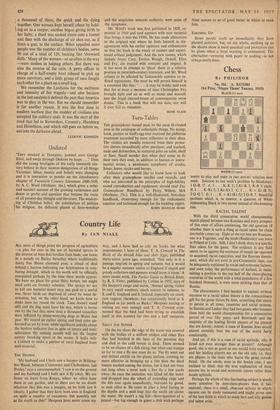Undated
'THEY mocked at Tennyson, yawned over George Eliot, and swept through Dickens by leaps....' Thus did the young hooligans of the early twentieth cen- tury behave in their wanton denigration of all things Victorian. Ideas, morals and beliefs were changing and it is instructive to ponder on the introductory chapter of Twentieth Century Literature 1900-1950, by A. C. Ward (Methuen, 16s.), which gives a sober and succinct account of the growing restlessness and desire to probe and question that became the roots - of all present-day thought and literature. The weaken- , ing of Christian belief; the substitution of politics for religion; the different phases of hero-worship- 'and the scepticism towards authority were some of the symptoms. Mr. Ward's book was. first published in 1928, re- printed in 1940 and now appears with new material that brings it into the 1950s. He has made alterations to the original text where he finds himself in dis- agreement with his earlier opinions and enthusiasms so that the book is the result of mature and experi- enced critical judgement. And the new names, which include Joyce Cary, Evelyn Waugh, Orwell, Eliot and Fry. are treated with restraint and respect. It is too soon to attempt to 'place' them in a relative position in twentieth-century literature, and Mr. Ward refuses to be affected by fashionable opinion or in- flated reputations. The most he will permit himself is a comment like this: '. . . it may be boldly said now that for at least a moment of time Christopher Fry brought light and air as well as music and warmth into the frigid charnel-house of contemporary verse drama.' This is a book that will not date, nor will it ever fail to stimulate.
IRENE SLADE.


































 Previous page
Previous page